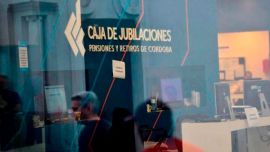Luiz Inácio Lula da Silva is huddling in São Paulo on Monday with his top advisers as the leftist former Brazilian president seeks to pivot his campaign to the northeast of the country and the key state of São Paulo after a narrower than expected first-round vote.
A focus of his meetings with campaign advisers is also on how to broaden his coalition of supporters to include more centrist politicians – the key grouping up for grabs as he and President Jair Bolsonaro start the clock on another month of campaigning before a run-off vote on October 30.
Lula, as he is widely known, took the most votes on Sunday. But at 48 percent to 43 percent for Bolsonaro he failed to get an outright win, and the margin was closer than most pollsters had forecast.
He is meeting with campaign advisers Monday afternoon to map out areas in need of improvement and give marching orders. One priority is to secure the support of Senator Simone Tebet, who came third in Sunday’s race and has already signalled she may take his side, according to two senior campaign members. On Sunday, she stopped short of announcing her support for Lula, saying she would give leaders of her coalition 48 hours to make a decision on whom to support.
“I won’t be neglectful,” she said. “I have a side and I will speak up at the right moment.”
A key challenge for Lula is the state of São Paulo, home to nearly a quarter of the country’s voters, and where he started his political career as a union leader five decades ago. Yet Bolsonaro won the state by a seven percentage-point margin, and the rejection of Lula’s Workers’ Party was stronger than his camp had anticipated.
Former São Paulo governor Geraldo Alckmin – Lula’s running mate – will need to work harder in the state, including garnering the support of agribusiness leaders, the advisers said, asking not to be identified discussing campaign strategy. Nationally, Alckmin will be charged with getting the backing of politicians who have broken with Bolsonaro but also aren’t comfortable associating themselves with the Workers’ Party after a series of corruption scandals rocked its previous governments.
Nightmare scenario
Bolsonaro’s solid performance across Brazil, including his unexpected inroads in some northeastern states that have traditionally been Lula’s bastion, have brought a cold dose of reality to Lula’s campaign. A sense of frustration pervaded his headquarters on Sunday night when it became clear the former president would finish the race with a lead of little more than five percentage points. The worst-case scenario, the people said, would have been an eight percentage-point gap.
Such a narrow lead may be explained by a migration of some of Ciro Gomes’ supporters toward Bolsonaro, according to the people.
A former governor of Ceara, the second largest state of the northeast region, Gomes sought to become a viable middle-road alternative to Lula on the left and Bolsonaro on the right, but never reached 10 percent of voting intention in opinion polls.
As Gomes’ campaign struggled, more of its traditionally left-leaning supporters drifted toward Lula. He reacted by stepping up attacks against the former president, including bringing up past corruption allegations against him.
Gomes came fourth on Sunday with only three percent of the vote, his weakest performance in four presidential runs. Lula’s advisers expect the majority of those votes will now come his way, regardless of whether Gomes decides to back the former president.
Lula will also spend more time campaigning in the northeastern region, particularly his home state Pernambuco, where he didn’t achieve the strong outcome he’d expected. Lula took the state with 65 percent of the vote versus 30 percent for Bolsonaro, compared with a forecast of 69 percent to 23 percent in an Ipec poll released on the eve of the vote.
related news
by Simone Iglesias, Bloomberg




















Comments